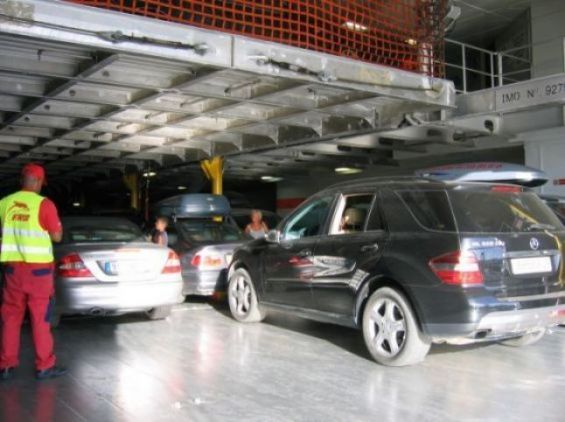It has been a real nightmare for many Moroccans living abroad that are returning to Europe after spending their holidays in the Kingdom. Some of them took to social media to denounce their mishaps at the Algeciras port. «I arrived in in Algeciras at five in the morning and I have been blocked there by the Spanish customs since then», a Moroccan national who lives in Germany and who drives a vehicle with provisional German plates said.
In a video shared on August 20 on social media, he said that people with similar car plates must pay several thousands of euros to recover their vehicles. «A Moroccan national living abroad got really angry and left in an ambulance because he had more than 20,000 euros to pay» to release his vehicle with German plates, he said.
«If you have a vehicle with a new plate or a German transit plate and you go through Algeciras, the vehicle would stay there if you don’t pay», he warned, advising Moroccans around the world to bypass the Spanish ports, especially that of Algeciras.
Italian ports are also affected
In a second video, the same man recalls his own issue. Blocked by the Guardia Civil, because of his car’s provisional plates, the man had to pay a sum equal to «31% of the value of the vehicle». «For some who have big expensive vehicles, supposing a basis of 30 000 euros, you will have 9 300 euros of taxes to pay, 12 400 euros for a car valued at 40 000 euros and 15 500 euros for a car valued at 50 000 euros to pay on the spot», he said.
«You go on vacation and when you come back, you are asked to pay 100 or 200 euros but now these are thousands of euros. We must not let that go, because having to pay these so-called 'taxes' with such high amounts, I find that disgusting», he added.
He states that «several Moroccans are unable to leave the port». «Some of them sleep near their vehicles, some with their children under the blazing sun. Others were attacked by the Spanish Customs and some were verbally harassed», he reported.
In a third video, we learn that the Customs in Morocco, especially in Tangier, reportedly knew about the new procedure. «The embassy of France in Morocco and the assistant of the consul told us that there is nothing they can do for us», he added. This is also a problem that is not limited to Spain since the same scenario would have also occurred with the Italian Customs.
The Moroccan also denounced the fact that the Spanish authorities «denied him the right to an interpreter and a translator», in accordance with their rights. «It's outrageous» he says, inviting people in the same situation to contact him to meet and file a complaint.
Vehicles considered as imported cars without declaration
Yabiladi also took note of the case of a second Moroccan who said, in a video relayed on social media, that he went through the same situation. According to his account, the «Algeciras Customs target luxurious cars».
Last March, the French Embassy in Spain informed that in the case of vehicles with temporary registration plates outside the European Union, the «Spanish Customs considers that these vehicles lose their customs status as Community goods and are exported to a third country».
«Thus, when you want to return with your vehicle on the territory of the EU (via Spain), you will have to present to the Spanish customs a declaration of importation of the vehicle (Unique Administrative Document) and pay the customs duties and corresponding taxes», the same source explains. Without this document, «the owner will be subject to a customs dispute for import without declaration, with possible confiscation of the vehicle», the aforementioned source warns.
The embassy gives but one piece of advice : «wait for the final registration» of the vehicle before using it to travel to a country outside the EU via Spain, so as not to have to pay import duties and taxes at the same time upon return. The information had yet to be disclosed, in time, to whom it may concern.




 chargement...
chargement...















